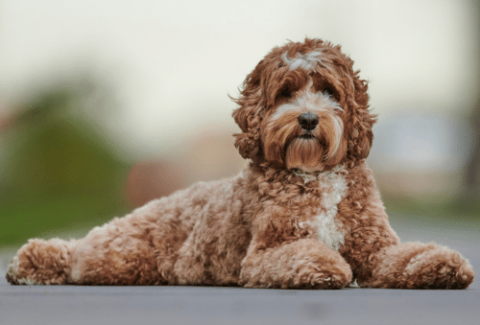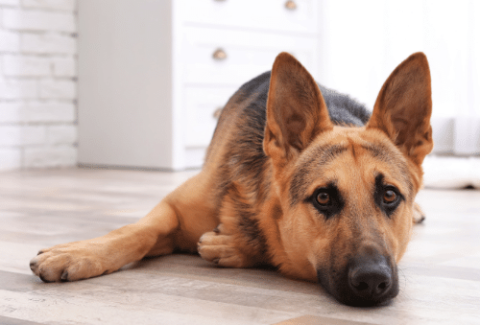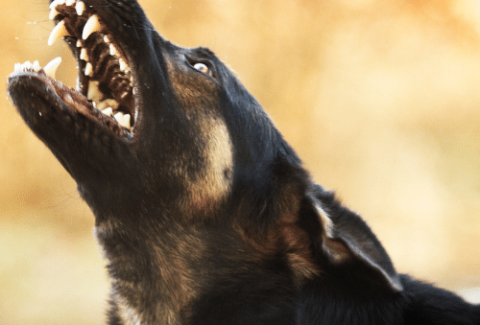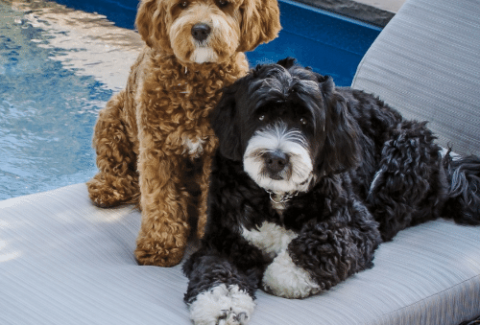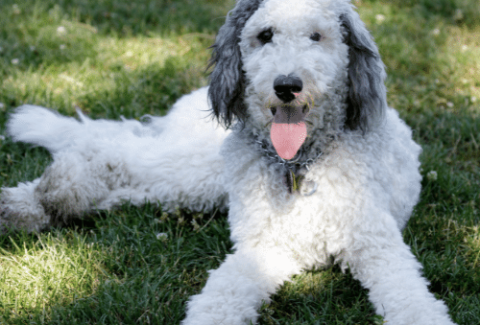What Does A Dachshund Cost?
July 12, 2021 2021-07-12 5:52What Does A Dachshund Cost?
Have you decided to add a Dachshund to your family? You are certainly not alone! These little dogs are full of personality, relatively easy to care for, and have a variety of markings and coat lengths that make each puppy adorable and unique. Requiring only moderate exercise, Dachshunds (or “Doxies”) don’t need much room to thrive and are ideal companions for those in apartments or without access to backyards. The Dachshund is becoming quite a popular dog choice for many reasons, and their price is dependent on several different factors. The short answer is you can expect to pay, on average, around $500-$1000 for your puppy. Depending on where you acquire your dog, prices range between $300 and $3500. Let’s examine the reasons for this wide price range.
Table of Contents
How much is a Dachshund?
You can easily find a Dachshund puppy for sale in classified ads. Registered breeders often have puppies available, though you may have to do some research to find them. Shelters and rescues may offer Doxie puppies for an adoption fee that can sometimes be as low as $300. The most expensive option for purchasing your puppy will be a registered breeder. Let’s explore why that is the case.

Getting a puppy from Craigslist
Dachshund puppies can be easily found on Craigslist and the prices are fairly low. The average cost per puppy is between $300 and $600. Because Doxies have become increasingly popular, the demand for them often exceeds supply. This has led to an increase in backyard breeders who want to sell these puppies as a primary source of income. The problem with this is Dachshund puppies are prone to a variety of health issues and require care in their breeding to make sure these issues are less likely. If someone is breeding dogs simply to make money and isn’t a registered breeder, their puppies are at high risk for developing costly and detrimental health issues in the future.
Craigslist puppies also run the risk of not receiving their first vaccinations, any deworming treatment, or veterinary care if they’re sick. Often, someone’s dog just had puppies and now they’re turning to the classified ads to try to sell them. If they’re advertising Dachshunds, it doesn’t always mean the puppies are purebred. Their dogs may have had an accidental litter with only one parent being a Dachshund or Doxie mix. These puppies will still be lovable and make wonderful pets, but if you’re looking for a purebred Dachshund, classified ads can often be deceptive.
Getting a puppy from a rescue
When you adopt a puppy from a rescue, you are charged an adoption fee. This fee can be as low as $300, and in some cases, even lower. The fee isn’t charged so that the rescue makes a profit. You’re paying this fee to help the rescue recoup the costs they put in to ensure your puppy is as healthy as they can make him. This includes veterinary care when the rescue acquired the puppy, any necessary vaccinations, any necessary medications to treat illnesses or conditions, and a spay/neuter surgery. Rescues take in many unwanted puppies that are the results of accidental litters, and their backgrounds and health can’t be guaranteed. The rescue will then do all they can to give you the healthiest puppy possible by providing the care it needs. If you purchase your puppy anywhere else, the veterinary care and spay/neuter surgery will be your responsibilities. Through adoption, these expenses are covered in the adoption fee and much more cost-efficient than separate vet visits for everything. You also pay the fee so the rescue can put money towards helping other animals in the future.

Getting a puppy from a breeder
When you purchase your Dachshund puppy from a registered breeder, you will be paying a premium. Puppies can range from $1500 to $3500. Even though you are paying a higher price upfront, you can trust that this is the best option for making sure your puppy is healthy. A responsible breeder will take breeding dogs in for genetic health tests to rule out the possibility of unhealthy puppies, sometimes even guaranteeing that their puppies will be free from certain ailments. The cost of a responsibly-bred puppy is worth the peace of mind of not having to pay thousands later for unforeseen health problems. Puppies from a breeder also come with their first vaccinations and deworming. They are likely too young to be spayed or neutered at the time of purchase, but your breeder may make you sign a contract saying you will have this done when the puppy reaches the suitable age.
Health Issues
Dachshunds face several common health issues associated with the breed. Typical ailments include:
- Intervertebral Disc Disease: a common condition in the lower spine of small dogs, the Dachshund is diagnosed with this disease more than any other breed of dog. Herniated discs cause pain, loss of feeling, inability to use limbs, and in severe cases, paralysis.
- Hypothyroidism: weight gain and lethargy are symptoms of this condition, and it’s often confused for obesity. Too little of the thyroid hormone to regulate your pup’s metabolism can also lead to other issues, like corneal ulcers and skin problems. Because hypothyroidism causes weight gain, this puts increased pressure on the spine, making it hard for your dog to move well and can eventually lead to Intervertebral Disc Disease.
- Cataracts and Glaucoma
- Obesity
- Skin/allergy issues
- Acanthosis Nigricans: a disorder that causes a dark pigmentation of the skin. Found primarily in Dachshunds, but able to affect all breeds, this condition is hereditary and can’t be cured.
When responsible breeding takes place, the parent dogs are tested for genetic conditions first to minimize the risk of these issues being passed down to their puppies. The idea is to breed out these conditions, make them less common, and not perpetuate their severity. Health tests for Dachshunds include the Intervertebral Disc Disease scan, which can show the likelihood of this problem occurring. This is done through X-ray screening and can cost $50-$300. Another test is the PRA screening, or Progressive Retinal Atrophy test. The average cost of this test is $40. Osteogenesis Imperfecta is an inherited disease that causes soft and fragile teeth and bones. The average price of this test is $50-$60. The costs of these tests plus regular veterinary checkups and necessary medications to treat any illnesses factor into your price for a puppy from a breeder. However, due to the diligence of the healthcare involved, this puppy is likely to be the healthiest you can find.
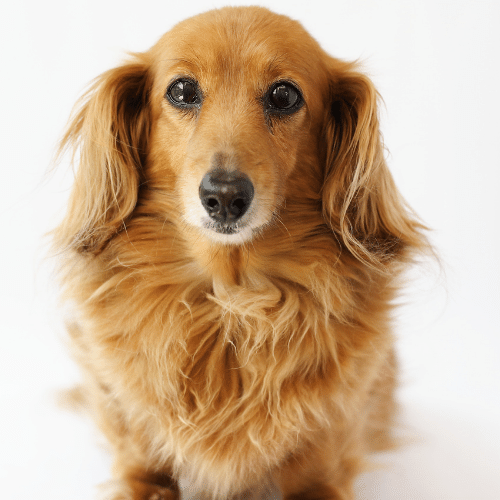
Annual costs of owning a Dachshund
Food, toys, treats, and everything else! Owning a Doxie is rewarding and fun, but requires a certain amount of care to ensure your dog leads a happy and long life.
Vet expenses
In addition to taking your pup to the vet whenever an illness or injury occurs, all dogs should visit the vet once a year for a wellness exam. A routine wellness exam costs between $50 and $80 typically, and this doesn’t include yearly vaccinations or any required medications.
Vaccines can cost $15-30, and it is advised that your dog also have yearly heartworm tests and receive heartworm prevention, usually in the form of a chewable tablet, every month. Heartworm tests are $40-$50 and are crucial in making sure your dog stays healthy. Heartworm prevention should be given to your dog once a month, and prices range depending on the amount you purchase at a time and the size of your dog. You can expect to pay between $100-$200 per year for heartworm prevention.
Due to your Doxie’s unique skeletal shape, they can’t move as easily or quickly as other breeds. Excessive running, jumping, and stair climbing can be detrimental to your dog’s spine. It’s very important to monitor your dog’s exercise and not allow him to strain his back or legs. While Doxies do love to play and enjoy walks for exercise and entertainment, remember to limit any strenuous activity and always watch your dog when he is playing with other dogs. This will prevent injury and avoid unexpected vet visits, which can be costly.
Food and toy costs
A good quality dog food for your Doxie can range from $20-$70, and this price range depends on the brand and bag size you purchase. Higher-quality food is going to be more expensive but may provide better overall health for your dog. Typical toys can cost on average $10-$20. How many toys you purchase for your dog depends on how quickly the toys wear out or become damaged. Avoid cheaper toys if they look to be easily destructible or have parts that may come loose and be swallowed. Some higher-priced toys are made of more durable material, lasting longer and not posing any safety risks to your dog.
Food and toy costs per month range from $40 to $100.
Accessories
Standard accessories for a Dachshund include a leash, collar or harness, bed, and bowls.
Food and water bowls can cost $5-$25. Leashes, depending on length and style, can cost $10-$30. Your dog’s bed can be the most expensive thing to buy, running anywhere from $20 to $100. You can expect to pay an average of $100 on accessories for your dog, but this is usually a one-time cost.

Price considerations
When it comes to adding any pet to your life, there are costs to consider beyond routine vet care, food, and toys. Will you bathe your dog and clip his nails yourself, or will you want a groomer to do this? A typical groom for a Dachshund can cost $25-$50. Will you want a dog walker to come and take your pup outside midday while you’re at work? Average costs for a half hour walk range from $15 to $25.
When you take a vacation, will you bring your dog with you or find a dog sitter? If you don’t have a trusted friend or relative with whom to leave your Doxie, you can hire a dog sitter for an average cost of $50 per day. This can cost a little less at a kennel, at around $30 per day.
Emergency vet bills are also a cost to consider. Hopefully, you never have to experience this, but when an emergency happens – illness, accident, or injury – sometimes the only place open is the emergency vet. This is always priced higher than your regular vet, sometimes costing double or triple what your vet’s office would charge. Prices you’ll incur in case of emergencies with your pets are always something to consider before bringing an animal into your home.
Rare Dachshunds, such as merle-colored ones, might have a much higher puppy price than regular-colored pups.
The bottom line
The price of purchasing and owning your Dachshund puppy is going to depend on a few different things, and you can choose the best options for yourself. You’ll spend between $300 and $3500 for a puppy, with the lowest cost being the adoption fee from a rescue and the highest cost being from a registered breeder. The price is always highest from a breeder because the breeder put money and care into ensuring the puppies are the healthiest they can be.
Vet care per year for your Doxie will cost $100-$300, including exams, vaccines, and heartworm prevention.
Feeding your dog will cost $20-$70 per month depending on the type and brand of food you buy. A high quality food will cost more but will keep your dog healthier overall.
Toys and accessories are other additional costs that will cost on average $50-$100. If you’d like additional care for your dog, such as dog walkers and pet sitters, you can expect to pay an average of $50 per day.
One-time costs associated with acquiring a Doxie puppy include the price of the puppy, dog supplies, and vet bills. On the high end, this can be over $5000 if you purchase your puppy from a breeder.
Ongoing monthly costs for food and toys average around $20-70.
The annual cost of owning a Doxie is around $600-$1200, depending on food choices and medical requirements.

Author: Jessica Rossetti
Jessica lives in Chicago with her husband, Dominic, and their rescued cat, Toast. She has lived with dogs for over 30 years and spends her days writing, caring for various animals, and enjoying her backyard that has become an oasis for wild creatures.
Her passion for animals began at a young age when she would bring home the lost dog or cat. As she got older, she went on to bring home an injured bird or raccoon. This love and desire to help all creatures led to her work as an adult with various animal rescues, where she saved the lives of many domestic and wild animals while learning the necessary skills to care for them.
Owning and operating a professional pet care service in Chicago for the past twelve years, Jessica cares for dogs in her home while writing full-time.
Steffi Trott
Related Posts
Are Labradoodles High-Maintenance?
At what age do Labradoodles calm down?
Are Pomeranians Good for First-Time Dog Owners?
Are German Shepherds Hypoallergenic?
Are German Shepherds Smart?
Are German Shepherds Vocal?
Are German Shepherds Good With Kids?
Do Bernedoodles like Water?
Do Bernedoodles Like Cats?
How Long Can Australian Shepherds Be Left Alone?
Check out our effective and affordable online dog training courses!
-
Sale Product on sale
 Tackling Reactivity Bundle
Tackling Reactivity Bundle
MONEY BACK GUARANTEE$564.00$49.00 -
Sale Product on sale
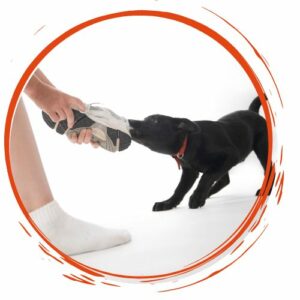 Perfect Obedience Bundle
Perfect Obedience Bundle
MONEY BACK GUARANTEE$349.00$49.00 -
Sale Product on sale
 Ultimate Puppy Bundle
Ultimate Puppy Bundle
MONEY BACK GUARANTEE$416.00$49.00 -
Sale Product on sale
 The Perfect Focus Bundle
The Perfect Focus Bundle
MONEY BACK GUARANTEE$445.00$169.00 -
Sale Product on sale
 Ultimate Masterclass Bundle
Ultimate Masterclass Bundle
MONEY BACK GUARANTEE$2,213.00$499.00


